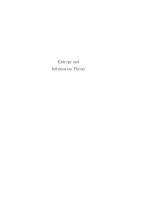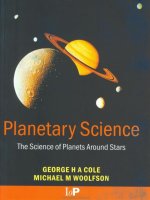R m cummings edmund spencer the critical heritage the collected critical heritage medieval romance 1996
Bạn đang xem bản rút gọn của tài liệu. Xem và tải ngay bản đầy đủ của tài liệu tại đây (1.39 MB, 387 trang )
EDMUND SPENSER: THE CRITICAL
HERITAGE
THE CRITICAL HERITAGE SERIES
General Editor: B.C.Southam
The Critical Heritage series collects together a large body of criticism on major
figures in literature. Each volume presents the contemporary responses to a
particular writer, enabling the student to follow the formation of critical attitudes
to the writer’s work and its place within a literary tradition.
The carefully selected sources range from landmark essays in the history of
criticism to fragments of contemporary opinion and little published documentary
material, such as letters and diaries.
Significant pieces of criticism from later periods are also included in order to
demonstrate fluctuations in reputation following the writer’s death.
EDMUND SPENSER
THE CRITICAL HERITAGE
Edited by
R.M.CUMMINGS
London and New York
First Published in 1971
This edition published in the Taylor & Francis e-Library, 2005.
“To purchase your own copy of this or any of Taylor & Francis or Routledge’s collection of
thousands of eBooks please go to www.eBookstore.tandf.co.uk.”
Reprinted in 1995 by Routledge
11 New Fetter Lane
London EC4P4EE
&
29 West 35th Street
New York, NY 10001
Compilation, introduction, notes and index © 1971 R.M.Cummings
All rights reserved. No part of this book may be reprinted or reproduced
or utilized in any form or by any electronic, mechanical, or other means,
now known or hereafter invented, including photocopying and recording,
or in any information storage or retrieval system, without permission in
writing from the publishers.
British Library Cataloguing in Publication Data
ISBN 0-203-19551-5 Master e-book ISBN
ISBN 0-203-19554-X (Adobe eReader Format)
ISBN 0-415-13402-1 (Print Edition)
TO MY MOTHER AND FATHER
General Editor’s Preface
The reception given to a writer by his contemporaries and near-contemporaries is
evidence of considerable value to the student of literature. On one side we learn a
great deal about the state of criticism at large and in particular about the
development of critical attitudes towards a single writer; at the same time,
through private comments in letters, journals or marginalia, we gain an insight
upon the tastes and literary thought of individual readers of the period. Evidence
of this kind helps us to understand the writer’s historical situation, the nature of
his immediate reading-public, and his response to these pressures.
The separate volumes in the Critical Heritage Series present a record of this
early criticism. Clearly for many of the highly-productive and lengthily-reviewed
nineteenth- and twentieth-century writers, there exists an enormous body of
material ; and in these cases the volume editors have made a selection of the most
important views, significant for their intrinsic critical worth or for their
representative quality—perhaps even registering incomprehension!
For earlier writers, notably pre-eighteenth century, the materials are much
scarcer and the historical period has been extended, sometimes far beyond the
writer’s lifetime, in order to show the inception and growth of critical views
which were initially slow to appear.
In each volume the documents are headed by an Introduction, discussing the
material assembled and relating the early stages of the author’s reception to what
we have come to identify as the critical tradition. The volumes will make
available much material which would otherwise be difficult of access and it is
hoped that the modern reader will be thereby helped towards an informed
understanding of the ways in which literature has been read and judged.
B.C.S.
Contents
GENERAL EDITOR’S PREFACE
vi
ACKNOWLEDGMENTS
xix
NOTE ON THE TEXT
xx
ABBREVIATIONS
xxi
INTRODUCTION
1
The Period 1579–1600
1
E.K., from The Shepheardes Calender (1579)
29
2
EDMUND SPENSER (1580–90)
36
(a) From Three Letters (1580)
(b) From Two Other Letters (1580)
(c) The Letter of Ralegh (1590)
3
GABRIEL HARVEY (1580–93)
(a) From the Marginalia (after 1580)
(b) From Three Letters (1580)
(c) From Three Letters (1580)
(d) Commendatory Verses (1590)
(e) From Four Letters (1592)
(f) From Four Letters (1592)
(g) From Four Letters (1592)
(h) From Four Letters (1592)
(i) From A New Letter (1593)
(j) From Pierces Supererogation (1593)
(k) From Pierces Supererogation (1593)
41
viii
(l) From Pierces Supererogation (1593)
4
WILLIAM WEBBE, from A Discourse of English Poetry
(1586)
47
5
THOMAS NASHE (1589–96)
50
(a) From Greene’s Menaphon (1589)
(b) From Pierce Penilesse (1592)
(c) From Have With You to Saffron-Waldon (1596)
6
GEORGE PUTTENHAM, from The Arte of English Poesie
(1589)
52
7
Anonymous commendatory verses (1590)
53
8
H.B., Commendatory verses (1590)
54
9
W.L., Commendatory verses (1590)
55
10
SIR WALTER RALEGH, Commendatory verses (1590)
57
11
R.S., Commendatory verses (1590)
59
12
WILLIAM VALLANS, from A Tale of Two Swannes (1590)
60
13
THOMAS WATSON, from the Elegy on Walsingham (1590)
61
14
JOHN FLORIO, from Florios Second Frutes (1591)
63
15
SIR JOHN HARINGTON (1591, C. 1600)
64
(a) From Orlando Furioso (1591)
(b) From Epigrams (c. 1600)
16
SAMUEL DANIEL (1592–99)
66
(a) From Delia (1592)
(b) From Delia and Rosamond Augmented (1594)
(c) From The Civill Wars (1599)
(d) From Musophilus (1599)
(e) From Musophilus (1599)
17
THOMAS CHURCHYARD (l593, 1595)
69
(a) From Churchyards Challenge (1593)
(b) From Churchyards Charitie (1595)
18
MICHAEL DRAYTON (1593–1627)
71
ix
(a) From Idea (1593)
(b) From Endimion and Phoebe (1595)
(c) From The Barrons Wars (1603)
(d) From Poems Lyrick and Pastoral (1605)
(e) From Poly-Olbion (1612)
(f) From Poly-Olbion (1612)
(g) From Poems (1619)
(h) From Poems (1619)
(i) From The Epistle to Henry Reynolds (1627)
19
THOMAS LODGE (l593, 1596)
75
(a) From Phillis (1593)
(b) From Wits Miserie (1596)
20
I.O., from The Lamentation of Troy (1594)
77
21
E.C., from Emaricdulfe (1595)
78
22
WILLIAM COVELL, from Polimanteia (1595)
79
23
THOMAS EDWARDS, three extracts from Cephalus and
Procris (1595)
80
24
JOSHUA SYLVESTER (1595, 1605)
82
(a) From The First Day (1595)
(b) From Devine Weekes and Workes (1605)
25
CHARLES FITZGEOFFREY, from Sir Francis Drake (1596)
83
26
JOSEPH HALL (1597–c. 1610)
85
(a) From Virgidemiarum (1597)
(b) From Virgidemiarum (1597)
(c) From Bedell’s A Protestant Memorial (c. 1605)
(d) Poem on Spenser, Sidney, and Camden (c. 1610)
27
RICHARD BARNFIELD, from Poems (1598)
88
28
RICHARD CAREW (1595, 1598)
89
(a) From The Excellencie of the English Tongue (c. 1595)
x
(b) From A Herrings Tale (1598)
29
FRANCIS MERES, from Palladis Tamia (1598)
90
30
THOMAS SPEGHT, from The Workes of Chaucer (1598)
92
31
JOHN WEEVER (1599–1601)
95
(a) From Epigrammes (1599)
Obituary Verse
(b) From Faunus and Melliflora (1600)
(c) From The Mirror of Martyres (1601)
32
WILLIAM ALABASTER, from Epigrammata (1600)
97
33
NICHOLAS BRETON, from Melancholike Humours (1600)
98
34
JOHN CHALKHILL, from Thealma and Clearchus (c. 1600)
100
35
I.F., from Weever’s Faunus and Melliflora (1600)
101
36
HUGH HOLLAND, On Spencer the Poett (c. 1600)
102
37
FRANCIS THYNNE, from Emblemes and Epigrames (1600)
103
38
FRANCIS BEAUMONT, from Poems (after 1600)
104
39
CHARLES FITZGEOFFREY, from Affaniae (1601)
105
40
WILLIAM BASSE, from Three Pastoral Elegies (1602)
108
41
JOHN ROSS, from Parerga (c. 1605)
110
42
WILLIAM WARNER, from A Continuance (1606)
111
The Period 1600–1660
43
WILLIAM CAMDEN (l600, 1605)
113
(a) From Britannia (1600)
(b) From Remaines (1605)
44
GEORGE DE MALYNES, from Saint George for England
(1601)
114
45
From The Return from Parnassus (1602)
115
46
WILLIAM HARBERT, from A Prophesie (1604)
117
47
SIR JOHN ROE, from Epistle to Sir Nicholas Smith (c. 1605)
118
xi
48
LODOWICK BRYSKETT, from A Discourse of Civill Life
(1606)
119
49
THOMAS DECKER, from A Knights Conjuring (1607)
122
50
SIR JOHN STRADLING, from Epigrammatum Libri Quatuor
(1607)
123
51
RICHARD NICCOLS, from Englands Eliza (1610)
124
52
HENRY STANFORD, Verses to Lady Hunsdon (1610)
125
53
HENRY PEACHAM, from Graphice (1612)
126
54
RICHARD ZOUCHE, from The Dove (1613)
127
55
THOMAS FREEMAN, from Rubbe (1614)
128
56
E.JOHNSON, from Browne’s Shepheards Pipe (1614)
129
57
JOHN NORDEN, from The Labyrinth of Mans Life (1614)
130
58
TRISTRAM WHITE, from The Martyrdom of Saint George
(1614)
131
59
THOMAS COLLINS, from The Teares of Love (1615)
132
60
WILLIAM BROWNE, from Britannia s Pastorals (1616)
133
61
BEN JONSON (1616, 1619)
135
(a) From The Golden Age Restored (1616)
(b) From Conversations with Drummond (1619)
(c) From Timber (1640)
62
From Apollo Christian (1617)
137
63
John Lane (1617, 1621)
139
(a) From Guy of Warwick (1617)
(b) From Tritons Trumphet (1621)
64
WILLIAM DRUMMOND, from Heads of a Conversation
(1619)
141
65
ROBERT AYLETT, from The Song of Songs (1621)
142
66
ROBERT BURTON, from Anatomy of Melancholy (1621,
1632)
144
67
ALEXANDER GILL, from Logonomia Anglica (1621)
147
68
WILLIAM MASON, from A Handfull of Essaies (1621)
148
xii
69
ROBERT SALTER, from Wonderful Prophecies (1626)
150
70
WILLIAM LISLE, from Virgil’s Eclogues (1628)
151
71
SIR KENELM DIGBY (1628)
151
(a) Discourse (before 1628?)
(b) Observations (1628)
72
NICHOLAS FERRAR, from The Story Books (1630s)
162
73
PETER HEYLYN (1631, 1652)
163
(a) From The Historie of St.George (1631)
(b) From Cosmographie (1652)
74
JOHN MILTON (1631–49)
165
(a) From Il Penseroso (1631?)
(b) From Against Smectymnuus (1641)
(c) From The Reason of Church-government (1641)
(d) From An Apology (1642)
(e) From Areopagitica (1644)
(f) From Eikonoklastes (1649)
75
HENRY REYNOLDS, from Mythomystes (1632)
167
76
E.G., from Vindiciae Virgilianae (after 1632)
168
77
PHINEAS FLETCHER, from The Purple Island (1633)
169
78
ROBERT JEGON, Spencero Posthumo (c. 1633)
172
79
RALPH KNEVETT, from A Supplement (c. 1633)
173
80
WILLIAM AUSTIN (before 1634)
176
(a) From Devotionis Augustinianae Flamma (before 1634)
(b) From Haec Homo (before 1634)
81
GEORGE WITHER, from Haleluiah (1641)
178
82
HENRY MORE (1642–64)
179
(a) From
Platonica (1642)
(b) From Conjectura Cabbalistica (1653)
(c) From The Grand Mystery of Godliness (1660)
xiii
(d) From Philosophical Writings (1662)
(e) From The Apology (1664)
83
GEORGE DANIEL, from Poems (1646)
182
84
SAMUEL SHEPPARD (1646–55)
184
(a) From The Times Displayed (1646)
(b) From Epigrams (1651)
(c) From The Faerie King (c. 1655)
(d) From The Faerie King (c. 1655)
85
JOSEPH BEAUMONT, from Psyche (1648)
187
86
MATHIAS PRIDEAUX, from An Easy and Compendious
Introduction (1648)
188
87
ABRAHAM COWLEY (1650, 1668)
189
(a) From A Discourse upon Gondibert (1650)
(b) From Of Myself (1668)
88
WILLIAM D’AVENANT, from A Discourse upon Gondibert
(1650)
191
89
R.C., from The Chast and Lost Lovers (1651)
193
90
WILLIAM BASSE, from The Pastorals (1653)
194
91
SIR ROBERT SOUTHWELL, from his Commonplace Book
(c. 1654)
195
92
SIR RICHARD FANSHAWE, from The Lusiad (1655)
196
93
SAMUEL HOLLAND, from Don Zara del Fogo (1656)
197
94
SIR ASTON COCKAYNE, from Small Poems (1658)
198
The Period 1660–1715
95
JOHN WORTHINGTON, Letter to Samuel Hartlib (1660)
201
96
SIR JOHN DENHAM, from Poems and Translations 1668)
203
97
EDWARD PHILLIPS, from Tractulus de Carmine Dramatico
(1669)
204
98
JOHN HACKET, Verses on Homer, Virgil, and Spenser (c.
1670)
205
xiv
99
100
RICHARD GRAHAM, from Angliae Speculum Morale
(1670)
206
JOHN DRYDEN (1672–1700)
207
(a) From The Conquest of Granada (1672)
(b) From The Spanish Fryar (1681)
(c) From The Satires of Juvenal (1693)
(d) From De Arte Graphica (1695)
(e) From The Works of Virgil (1697)
(f) From The Works of Virgil (1697)
(g) From Fables Ancient and Modern (1700)
(h) From The Art of Poetry, with SIR WILLIAM SOAME (1683)
101
THOMAS RYMER, from Reflections (1674)
211
102
PETER STERRY, from A Discourse (1675)
212
103
SAMUEL WOODFORD, from A Paraphrase Upon the
Canticles (1679)
213
104
JOHN CHATWIN, A Pastoral Elegy (c. 1680)
215
105
THOMAS D’URFEY, from Sir Barnaby Whigg (1681)
217
106
HENRY KEEPE, from Monumenta Westmonasteriensa
(1682)
218
107
From A Pastoral (1683)
219
108
KNIGHTLY CHETWOOD, from An Essay on Translated
Verse (1684)
220
109
Anonymous Comment following Rymer (1685)
221
110
The Preface to Spenserus Redivivus (1687)
222
111
EDWARD HOWARD, from Caroloiades (1689)
227
112
SIR WILLIAM TEMPLE, from Upon Poetry (1690)
228
113
From the Athenian Mercury (1691)
229
114
JOSEPH ADDISON (1694–1712)
230
(a) From An Account of the Greatest English Poets (1694)
(b) From The Spectator No. 62 (1711)
(c) From The Spectator No. 183 (1711)
xv
(d) From The Spectator No. 297 (1712)
(e) From The Spectator No. 419 (1712)
115
SIR RICHARD BLACKMORE (1695, 1716)
232
(a) From Prince Arthur (1695)
(b) From Essays (1716)
116
PATRICK HUME, from Notes upon Milton s Paradise Lost
(1695)
234
117
LUKE MILBOURNE, from Notes on Dryden’ s Virgil (1698)
235
118
JOHN DENNIS (1698–1717)
236
(a) From The Usefulness of the Stage (1698)
(b) From The Grounds of Criticism (1704)
(c) From The Grounds of Criticism (1704)
(d) From Remarks upon Mr Pope’s Homer (1717)
119
SAMUEL WESLEY, from The Life of our Blessed Lord
(1697)
238
120
SAMUEL COBB, from Poetae Britannici (c. 1700)
239
121
HENRY HALL, from Luctus Britannici (1700)
240
122
A note on Spenser’s influence (1702)
241
123
N.N., from Secretaria di Apollo (1704)
242
124
ALEXANDER POPE (1704?, 1713)
243
(a) From A Discourse on Pastoral Poetry (1704?)
(b) From The Guardian No. 40 (1713)
125
MATTHEW PRIOR (1706, 1708)
245
(a) From An Ode (1706)
(b) From Solomon (c. 1708)
126
AMBROSE PHILIPS, from Pastorals (1710)
246
127
SIR RICHARD STEELE (l710, 1712)
247
(a) From The Tatler No. 194 (1710)
(b) From The Spectator No. 540 (1712)
xvi
128
LEONARD WELSTED, from Longinus on the Sublime
(1712)
252
129
HENRY FELTON, from A Dissertation (1713)
254
130
THOMAS PARNELL, from Essay on the Different Styles of
Poetry (1713)
255
131
JOHN HUGHES, from the 1715 edition of Spenser
256
Language and Style
132
GABRIEL HARVEY (1580)
279
(a) From the Marginalia (1580 and after)
(b) From Two Other Letters (1580)
133
SIR PHILIP SIDNEY, from The Defence of Poesie (c. 1583)
283
134
ABRAHAM FRAUNCE, from The Lawiers Logike (1588)
284
135
HENRY PEACHAM, from The Garden of Eloquence (1593)
285
136
HADRIAN DORRELL, from Willobie his Auisa (1594)
286
137
SIR JOHN HARINGTON, from The Metamorphosis ofAiax
(1596)
287
138
WILLIAM LISLE, from Part of Du Bartas (c. 1596)
288
139
JOSEPH HALL, from Virgidemiarum (1598)
289
140
FRANCIS BEAUMONT, from the Letter to Speght (1598)
290
141
CHARLES BUTLER, from Rhetoricae Libri Duo (1598)
291
142
EVERARD GUILPIN, from Skialetheia (1598)
293
143
A note on Spenser’s failure to write ‘trew Hexameters’ (1599)
294
144
JOHN BODENHAM, from Belvedere (1600)
295
145
RICHARD CAREW, from The Suruey of Cornwall (1602)
296
146
EDMUND BOLTON, from Hypercritica (c. 1618)
297
147
ALEXANDER GILL, from Logonomia Anglica (1621)
298
148
BEN JONSON, from Timber (1640)
299
149
NATHANIEL STERRY, from A Direction (c. 1650)
300
150
JOHN DAVIES, from The Extravagant Shepherd (1653)
301
151
EDWARD HOWARD (1669, 1689)
302
xvii
(a) From The Brittish Princes (1669)
(b) From Caroloiades (1689)
152
SIR THOMAS CULPEPPER, from Essayes (1671)
304
153
EDWARD PHILLIPS, from Theatrum Poetarum (1675)
305
154
JOHN OLDHAM, from Horace His Art of Poetry (1681)
306
155
JOHN DRYDEN (1685–1697)
307
(a) From Sylvae (1685)
(b) From The Satires of Juvenal (1693)
(c) From The Works of Virgil (1697)
156
FRANCIS ATTERBURY, from Waller’s Poems (1690)
309
157
JAMES HARRINGTON, from Athenae Oxonienses (1691)
310
158
SIR THOMAS POPE BLOUNT, from De Re Poetica (1694)
311
159
JOHN HUGHES (1698, 1715)
313
(a) From Of Style (1698)
(b) From the 1715 edition of Spenser
(c) From the 1715 edition of Spenser
160
LUKE MILBOURNE, from Notes on Dryden’s Virgil (1698)
316
161
RICHARD BENTLEY, from A Dissertation (1699)
317
162
SAMUEL WESLEY, from An Epistle to a Friend (1700)
318
163
MATTHEW PRIOR, from An Ode (1706)
318
164
EDWARD BYSSHE, from The Art of English Poetry (1708)
320
165
WILLIAM COWARD, from Licentia Poetica (1709)
321
166
JOHN DENNIS (1711, 1722)
323
(a) From Reflections (1711)
(b) From Of Prosody (1722)
167
ALEXANDER POPE, from The Guardian No. 40 (1713)
324
Biographical Notices
168
WILLIAM CAMDEN (1600, 1615)
(a) From Reges Reginae…(1600)
326
xviii
(b) From Annales Rerum Anglicarum (1615)
169
SIR JAMES WARE, from A View (1633)
328
170
ROBERT JOHNSTON, from Historia Rerum Britannicarum
(before 1639)
330
171
THOMAS FULLER, from The Worthies of England (1662)
332
172
JOHN AUBREY, from Brief Lives (up to 1697)
334
173
EDWARD PHILLIPS, from Theatrum Poetarum (1675)
336
174
The Life of 1679
337
175
WILLIAM WINSTANLEY, from England’s Worthies (1684)
340
176
GEORGE SANDYS, from Anglorum Speculum (1684)
343
177
THOMAS BLOUNT, from De Re Poetica (1694)
344
178
JOHN HUGHES, from the 1715 edition of Spenser
347
179
ADDENDUM: G.W.SENIOR and G.W.T., from Amoretti
(1595)
354
BIBLIOGRAPHY
356
INDEX
358
Acknowledgments
To F.I.Carpenter’s A Reference Guide to Edmund Spenser (Chicago, 1923) and
to Dorothy F.Atkinson’s Edmund Spenser: A Bibliographical Supplement
(Baltimore, 1937) I am necessarily indebted. I am fortunate in being able to
express a yet larger debt to the generosity of Professor William Wells of the
University of North Carolina, who put at my disposal the typescript of the long
projected Spenser Allusion Book. There is very little indeed that I can add to the
labours of its contributors. Professors Heffner, Padelford, and Wells are those
who in succession have taken responsibility for the book, but the massive
contribution of Miss Dorothy Mason (now of the Folger Library) cannot go unnoticed here. Miss Mason was also kind enough to answer an enquiry for me.
For advice, encouragement, and for supplying valuable references, I am grateful
to Dr Alastair Fowler of Brasenose College, Oxford, to Professor J.C.Bryce of
Glasgow University, and to Mr R.M.Wilding of Sydney University. Dr van
Dorsten of the Sir Thomas Browne Institute at Leyden, and the Rector of Lincoln
College, Oxford, kindly answered specific enquiries. For other advice I thank
Miss Hannah Buchan, and Mr Nigel Alexander, both of Glasgow. The University
of Glasgow has been generous in its contributions towards my expenses.
Note on the Text
The original spelling of the passages gathered here has been preserved, though
short ‘s’ has in all cases been substituted for long. References to modern editions
of works cited have been given only for convenience of consultation: nowhere
have I attempted a bibliography of reprintings. All enclosures in square brackets
are editorial. Where continuity of sense is not at risk, line references have been
substituted for quotations from Spenser and certain other easily accessible
authors.
Original footnotes are indicated by a star (★), dagger (†), etc.
Abbreviations
Variorum Spenser The Works of Edmund Spenser: A Variorum Edition
(Baltimore, 1932–49)
ELH
HLB
HLQ
MLN
MP
N &Q
PQ
RES
PMLA
Journal of English Literary History
Huntington Library Bulletin
Huntington Library Quarterly
Modern Language Notes
Modern Philology
Notes and Queries
Philological Quarterly
Review of English Studies
Publications of the Modern Language Association
Introduction
I
This book ends at a point where it might well begin. ‘Before 1715’, writes
William Mueller, ‘we have little more than a series of incidental remarks on
Spenser… John Hughes, in the critical essays of the 1715 edition, was the first
writer to consider the sum of Spenser’s work, and not merely fragments of it.’1 No
one could argue with that. Individually the passages printed in this book are
unlikely to yield any but an incidental interest. Collectively, they are, I hope, in a
variety of ways interesting and useful. In particular, they may draw attention to
emphases in Spenserian criticism, from which the modern reader has generally
been drawn away. There is almost nothing even in the best of the following
pages (excepting the pieces by Hughes), which a modern critic would
spontaneously have thought of saying. That is, the seventeenth-century and the
twentieth-century impressions of Spenser’s work are very different. There is,
moreover, very little on the following pages which a modern critic would even
think worthwhile saying. The only real argument against the notion that most of
the passages printed here are critically useless is to point to the unlikelihood of
so many clever and learned men having written nonsense. It will not do to
pretend that they were blinkered, that they could never see beyond their own
immediate concerns, or beyond Cicero or beyond Bossu. While the modern
reader and critic is so isolated from the perceptions (and the ordering of those
perceptions) of those closest to Spenser in time and presumably in sympathies,
his ground is not the safest. On the other hand, the fragmentary character of most
of what is printed here is not something which can be properly apologized for at
all. It is merely unfortunate. It can however be said that there is no English poet
of the period on whom more extended comment would be available. In Italy or
even in France it would have been different. But in England the criticism of
vernacular poetry was simply not such an industry then as it was on the Continent.
That does not make its errors (when it is certain that they are errors) more those
of folly than of carelessness; and it is not in the main an underdeveloped
discipline in any but a quantitative sense. In the circumstances it is remarkable
2 INTRODUCTION
that Spenser so early attracted as much critical attention as he did—a good deal
more than, say, Shakespeare.
The material offered here, with the exception of chiefly linguistic or chiefly
biographical comment, has been arranged chronologically. On the supposition
that readers will probably find it more convenient to have all criticisms by any
one author set together (for example, those by Harvey, Drayton, or Dryden),
even when they must be dated very differently, I have broken the chronological
arrangement to accommodate all such pieces under one heading. As well as
being more convenient, this sophistication of the arrangement also provides a
more coherent perspective on the material: the criticisms of Dryden, for
example, are determined more by his own preoccupations than by his reading of
other critics. The three larger sections (covering the periods 1579–1600, 1600–
1660, 1660–1715) into which all this material falls are fluid (Drayton for
example is included in the first, but writes more about Spenser after 1600 than
before), but contain material of roughly similar character. The following pages
of the Introduction explain what general trends obtain within those periods. The
separate grouping of two specialized kinds of comment should not disturb the
general reader. There is enough cross-referencing to ensure that he misses
nothing. For those specifically interested in the development of Spenser’s
biography, or in the history of the English language, the gathering together of
biographical notices and of linguistic or stylistic comment has such immediate
and pressing advantages as to make worth while the disturbance of any
straightforward arrangement. Readers who wish to consult the collection of
linguistic comment are advised that where material which might properly have
been set there forms part of some more general discussion, it has been left in the
body of the book. References to such material have been provided at the
beginning of the section.
The brief introductory essay which immediately follows is intended only as
the most generalized kind of guide. It attempts no extended discussion of any of
the passages included in the book, but is meant rather to organize a selection of
points into some rough historical pattern. Notions rather different from my own
could, I have no doubt, be substantiated from the same evidence.
II
HISTORY OF PUBLICATION
Spenser’s first essay in print, the translations for Van der Noot’s Theatre (1569),
went neglected in his time, and except for the brief and often reluctant
observations of scholars more recently, have been ever since. His second, The
Shepheardes Calender (1579), won its author immediate fame—though it was
not generally known who the author was2—and in Spenser’s own lifetime went
through five editions. That those editions were printed with successively inferior
texts is from a literary critic’s point of view unimportant. It shows only that
demand for the poems was high, but that expectations of textual accuracy were
INTRODUCTION 3
not. At least up to the mid-eighteenth century, Spenser’s reputation rests most
securely on that poem. ‘Uncouth unkist’, but once known, ‘beloued of all,
embraced of the most, and wondred at of the best’. (No. 1a.) Even before the
publication of the Faerie Queene (1590), the Shepheardes Calender appeared
twice more (in 1581 and in 1586), and Harvey had given the publisher
Bynneman a correspondence between Spenser and himself which advised the
public, though probably only a small public, that they were to expect yet more of
the new poet (No. 3c).
Both the Shepheardes Calender and the Faerie Queene were the products of
widely collaborative critical effort. E.K., if he was Edward Kirke, belongs to
Spenser’s Cambridge circle; if he was Fulke Greville (the most interesting of
recent suggestions),3 then he belongs to the Leicester House circle with which
Spenser was associated—how intimately will never be known. The Faerie
Queene had gone through not only Gabriel Harvey’s hands (and changed much
in the process, for Harvey by 1590 [see No. 3d] has reversed his earlier judgment
of the poem), but through Abraham Fraunce’s, and if legend can be believed,
through Sidney’s as well.4 In any case both Cambridge and London probably
contributed something, and it would be unlikely had Spenser’s friends in Dublin
not seen and commented on it. There is unfortunately no weight of evidence on
which an account of Spenser’s composition of any of his poetry can be based. It
is generally assumed that the composition of the Faerie Queene involved a
number of changes in the whole conception of the poem, but precisely what
changes of conception can hardly be known. Everyone admires the ingenuity of
J.W.Bennet’s attempt, in The Evolution of ‘The Faerie Queene’, to determine
Spenser’s compositional procedures; but few critics will now accept her
conclusions as definitive.5 There is no way of gauging how Spenser responded to
his public, or what shifts he made to satisfy any private audience. Very little he
writes is precisely datable, and very little is known of his public.
There is for many people something suspiciously timely about the publications
after 1590 of various collections of minor pieces. After the Faerie Queene had
won ‘fauourable passage’, Ponsonby published a volume under the title
Complaints (1591).6 It is a volume elaborately and variously dedicated,
ostensibly, as it is put in the dedication of the Ruines of Time, to the Countess of
Pembroke, to avoid ‘that fowle blot of unthankfulness’. Show and reality in these
matters are nicely distinguished in the century, but the instinctive approval that
one accords to Professor Danby’s brief and suggestive account of Spenser’s
search for patrons, of his writing poetry ‘to maintain him in place in the body of
the world’, should be qualified by the recognition that Spenser appears most
conspicuously on the hunt for patrons only after it quite obviously has to be
acknowledged that he is a great poet.7 There is a cunning ambiguity in the
dedication of the Tears of the Muses to Lady Strange—‘that by [my] honouring
you they might know me, and by knowing me, they might honour you’.
Spenser’s praise of Leicester is strongest after Leicester is dead.8 The
Prothalamion (1596) was presumably commissioned by the Earl of Worcester,









